Are You China-Ready?
Are You China-Ready?
Insight MinLaw goes behind the scenes to uncover stories about how the work we do impacts you.
In today’s globalised world, Singapore’s law firms must find new and innovative ways to stand out on the international arena.
To put our law firms in good stead to seize new opportunities in China, MinLaw launched the first run of the China Ready Programme in August 2020. This builds on Singapore’s deepening bilateral ties with China, particularly in legal and judicial cooperation. The 11-week programme covered legal skills and cultural knowledge, enabling lawyers to navigate through the complex business environment in China. It was developed and delivered by the Han Culture & Education Group (HCEG), a subsidiary of Singapore Press Holdings.
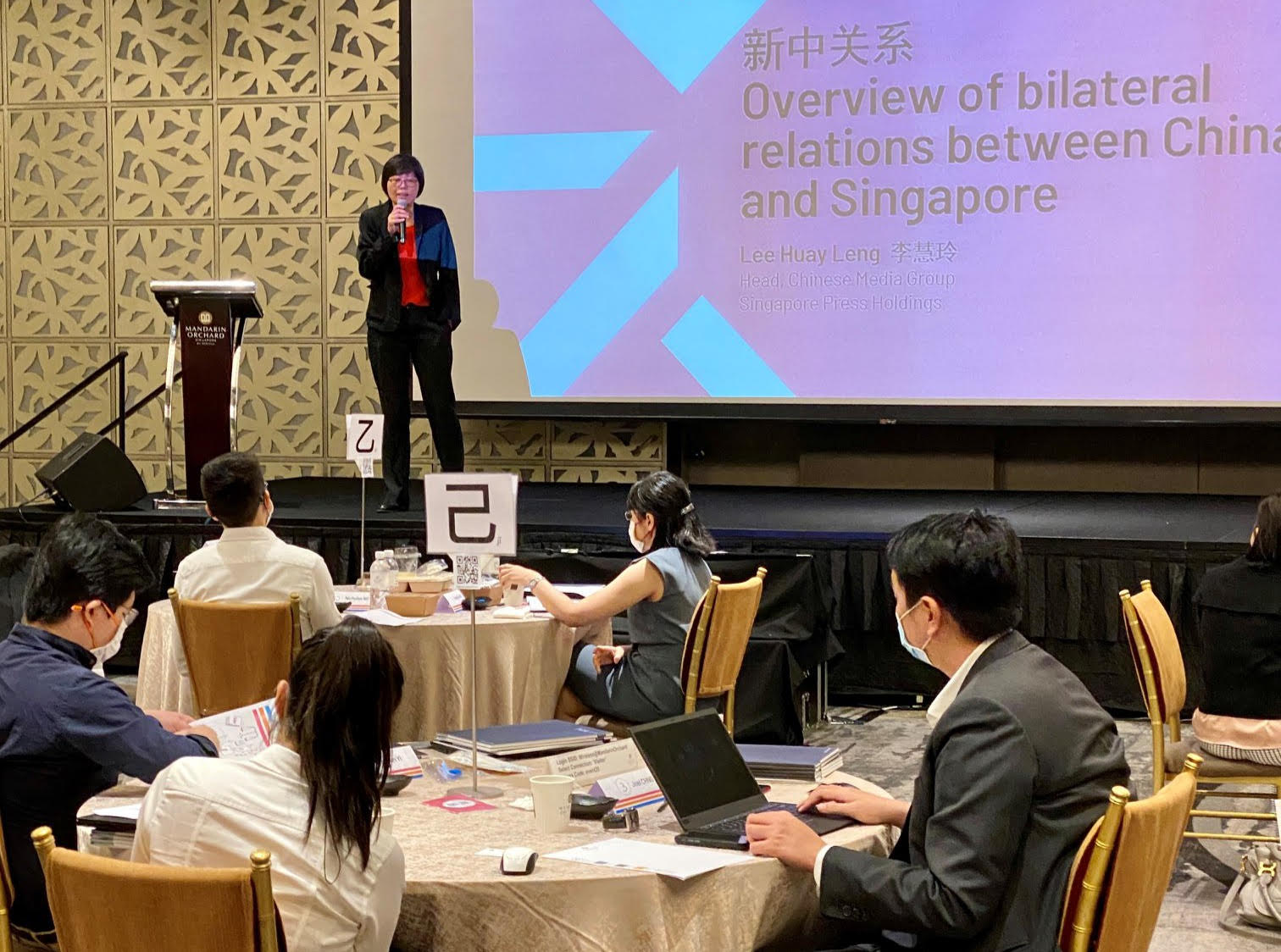 The programme covered topics such as Chinese business communications skills and bilateral relations between Singapore and China. (Credit: HCE)
The programme covered topics such as Chinese business communications skills and bilateral relations between Singapore and China. (Credit: HCE)
“The China Ready Programme is tailored to address the needs of legal professionals who are interested in the Chinese market, and work with Chinese companies and law firms to meet the needs of businesses,” said Ms Ellis See, 2Director of MinLaw’s Legal Industry Division, which develops Singapore’s legal services sector to meet local, regional and international demands.
“The modules will help the participants gain a deeper understanding of the Chinese operating environment, legal system and laws; navigate the differences between how Singapore- and China-based businesses work and think; and build up competencies in communicating professionally with Chinese clients in the legal context. The knowledge and networks will help open more doors for Singapore lawyers as both Singapore- and China-based businesses look to expand into the region,” she added.
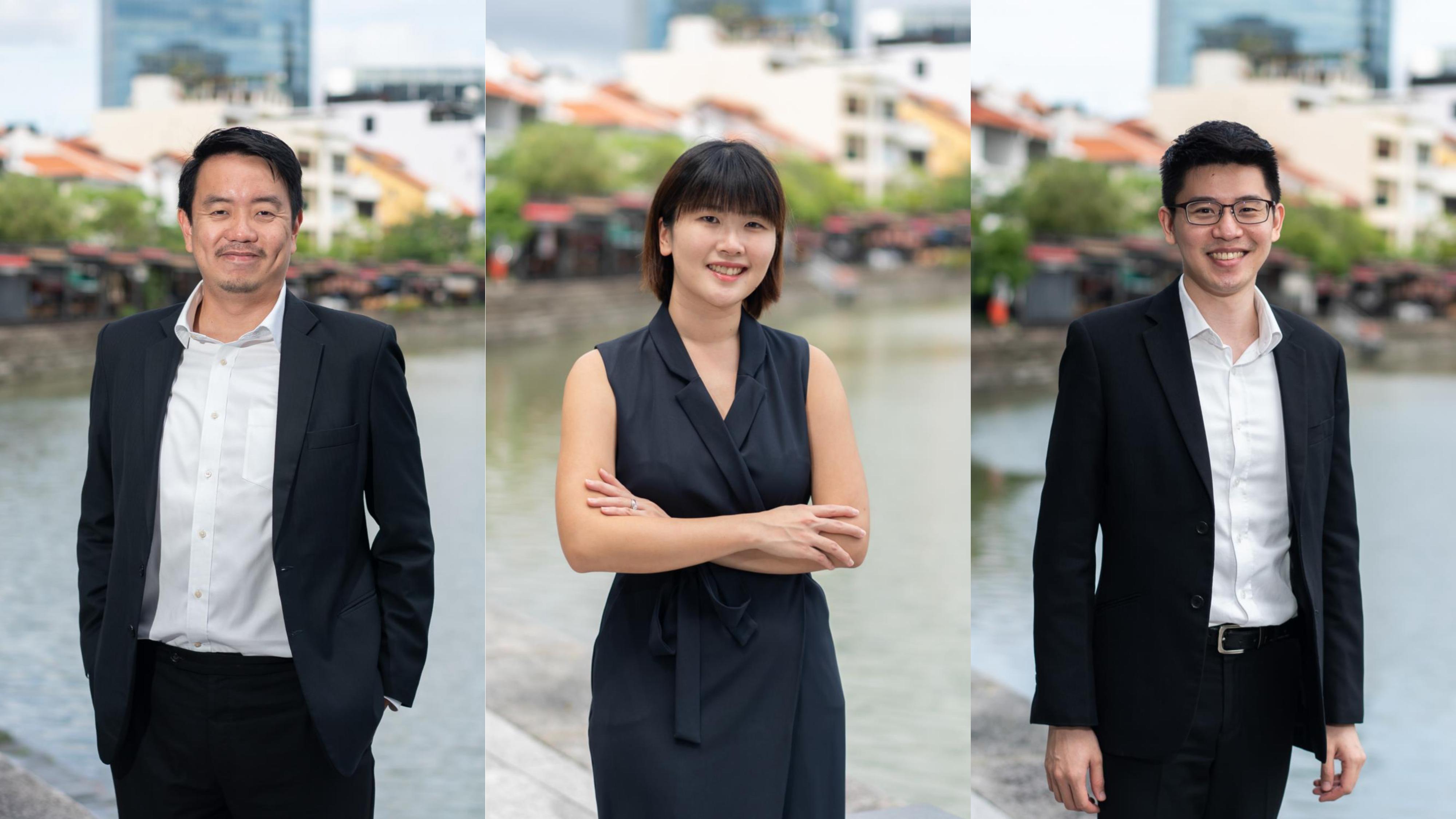 Participants of the inaugural run. From left: Joel Chng, Tan Tian Hui and Nicholas Ng
Participants of the inaugural run. From left: Joel Chng, Tan Tian Hui and Nicholas Ng
The China Ready Programme returns for a second run in January 2022, after the successful inaugural run. We speak to three Singapore lawyers from the pioneer cohort on their key takeaways and how they put their newfound knowledge to use.
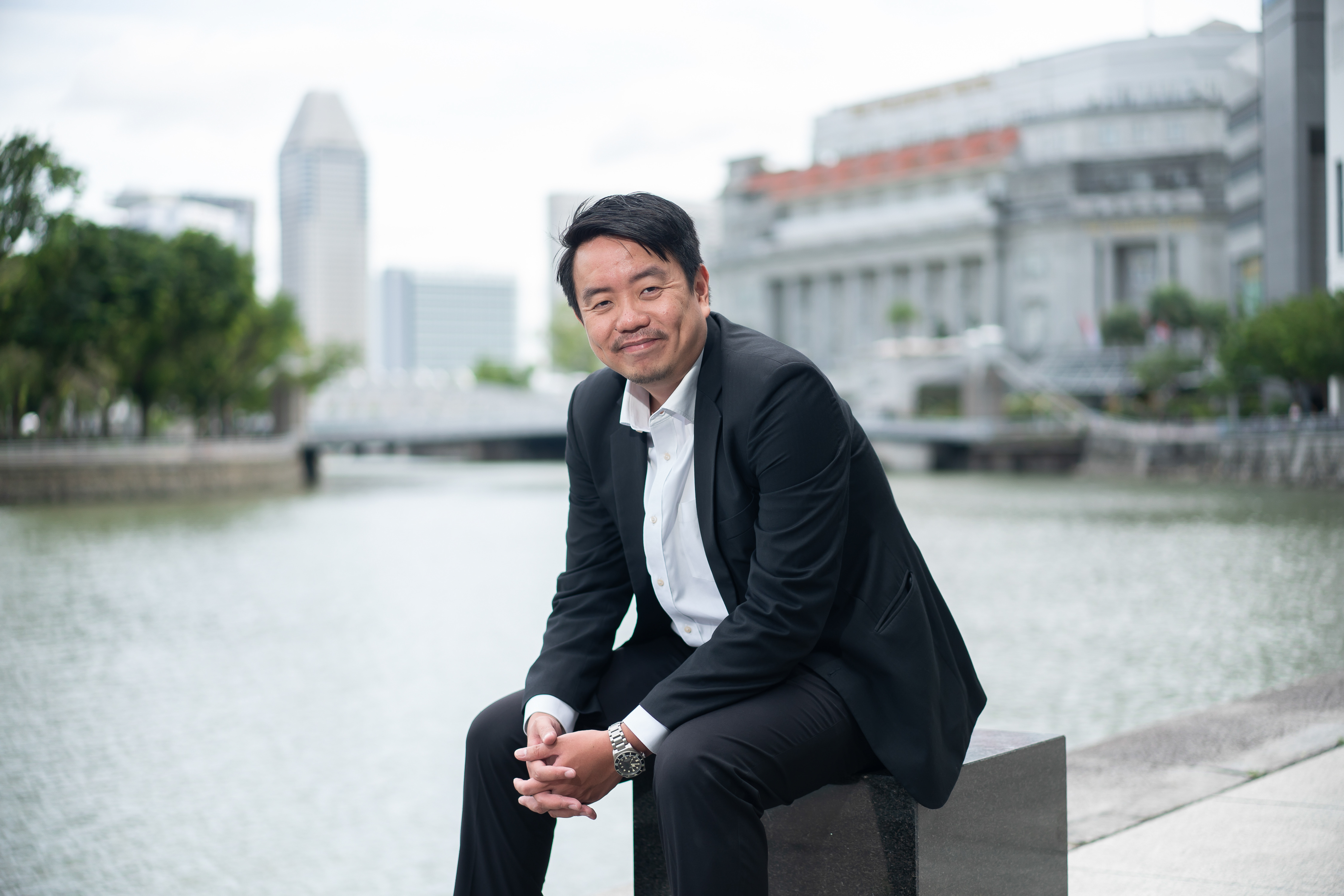 Joel Chng, Partner, WongPartnership LLP
Joel Chng, Partner, WongPartnership LLP
Insight MinLaw: Why did you enrol in the programme?
Joel: I saw it as a great opportunity to expand my network and explore areas where I can deepen cooperation with existing and new Chinese clients. The course would also enable me to widen my knowledge of Chinese legal concepts and terminology, which would be useful in my line of work.
Insight MinLaw: Did the programme meet your objectives and what are your takeaways?
Joel: Yes, it has met my objectives of deepening my knowledge of Chinese legal concepts and terminology. I was especially interested in the concept of security under Chinese law and the different ways in which security can be taken or enforced, as these are relevant to restructuring work (which involves understanding what security a company is subject to and the options available to a company in an enforcement scenario).
Insight MinLaw: How has the programme helped you in your work?
Joel: I was able to immediately put my newfound knowledge to use! Shortly after learning about the concept of a repairer’s lien under Chinese law, I had to deal with Chinese counsel on the same issue, and was able to communicate and understand from a Chinese law perspective why the counterparty had insisted on a particular course of action as a means of protecting their security.
Insight MinLaw: Tell us one interesting thing you learnt at the programme that you never knew.
Joel: The concept of having a second trial. This is interesting as common law jurisdictions tend to have one trial followed by one (or two) rounds of appeal.
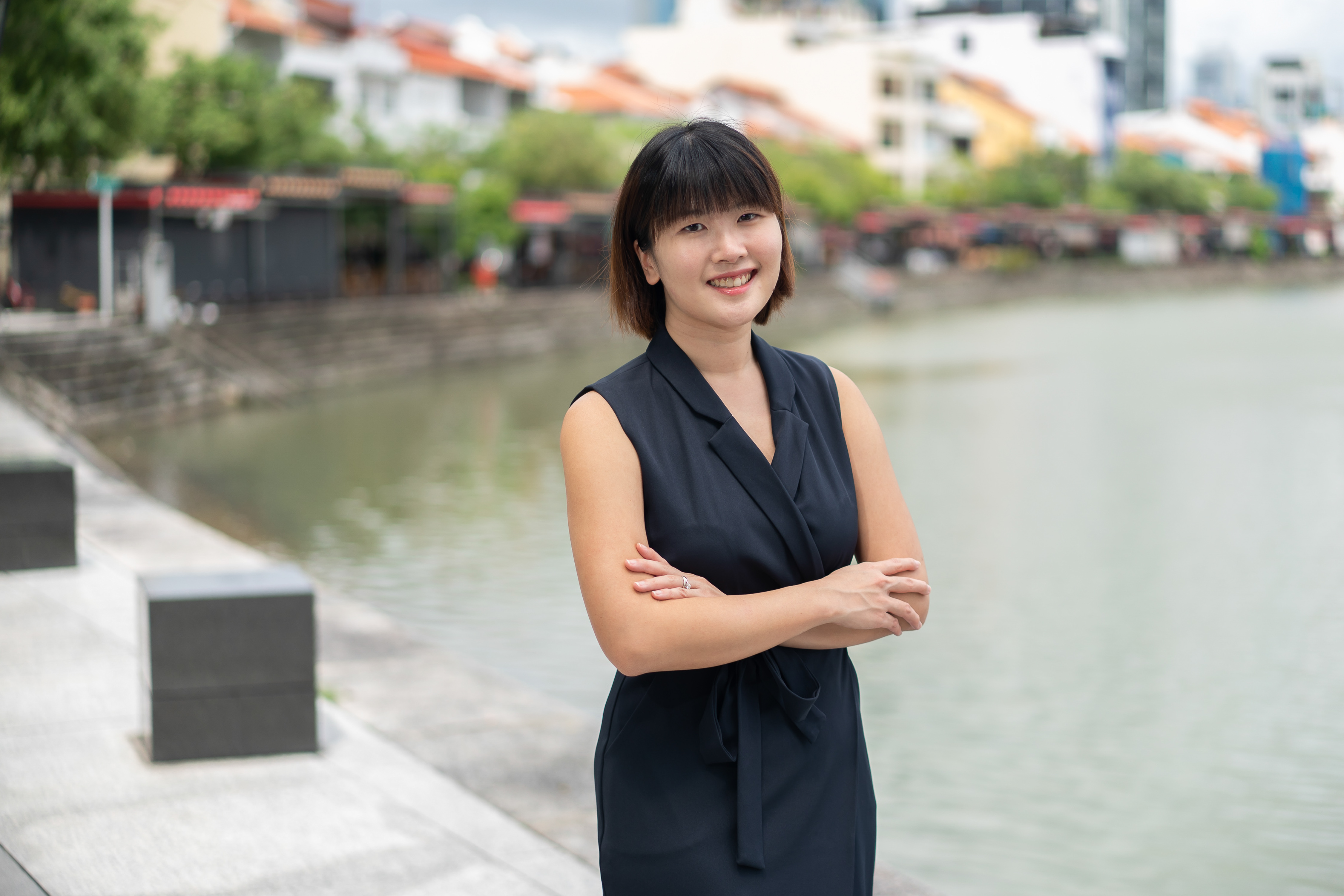 Tan Tian Hui, Senior Associate, Rajah & Tann Singapore LLP
Tan Tian Hui, Senior Associate, Rajah & Tann Singapore LLP
Insight MinLaw: Why did you enrol in the programme?
Tian Hui: I enrolled in the programme due to its relevance to my areas of practice. I am currently practising in the China Related Investments Dispute Resolution department of Rajah & Tann Singapore. As part of my practice, I encounter issues that involve Chinese law from time to time, and I thought it would be helpful to gain an understanding of the Chinese legal system, as well as to understand how it compares to the Singapore legal system. I was also keen to meet like-minded legal professionals who have a similar interest in furthering their understanding of Chinese law and their legal system.
Insight MinLaw: Did the programme meet your objectives and what are your takeaways?
Tian Hui: The programme met my objectives as participants gained an in-depth understanding into the basic principles and rules in major areas of Chinese law, as well as an overview of the legal institutions in China. I also learnt legal terminology that has proven to be helpful in my work.
Insight MinLaw: How has the programme helped you in your work?
Tian Hui: As I practise in the dispute resolution department, the module on dispute resolution in China was particularly helpful. I found the program challenging initially as I was unfamiliar with the legal terminology that was used. Even though I had come across Mandarin legal terms previously, this was my first time attending a Chinese law course which was conducted entirely in Mandarin. However, as the course progressed, I had become more familiar with the terms and I found it easier to understand the contents of each module that was taught.
I also learnt about the judicial system in China – i.e. its organisation and operation of the Courts in China, as well as basic civil procedure in China. This will help me to relate better to clients where their cases involve PRC proceedings.
Insight MinLaw: Tell us one interesting thing you learnt at the programme that you never knew.
Tian Hui: I learnt that there are many specialised Courts in China for the handling of different types of disputes. For instance, courts that specialise in maritime, IP Law and financial matters. There is even a Hangzhou Internet Court, which deals specifically with e-commerce disputes!
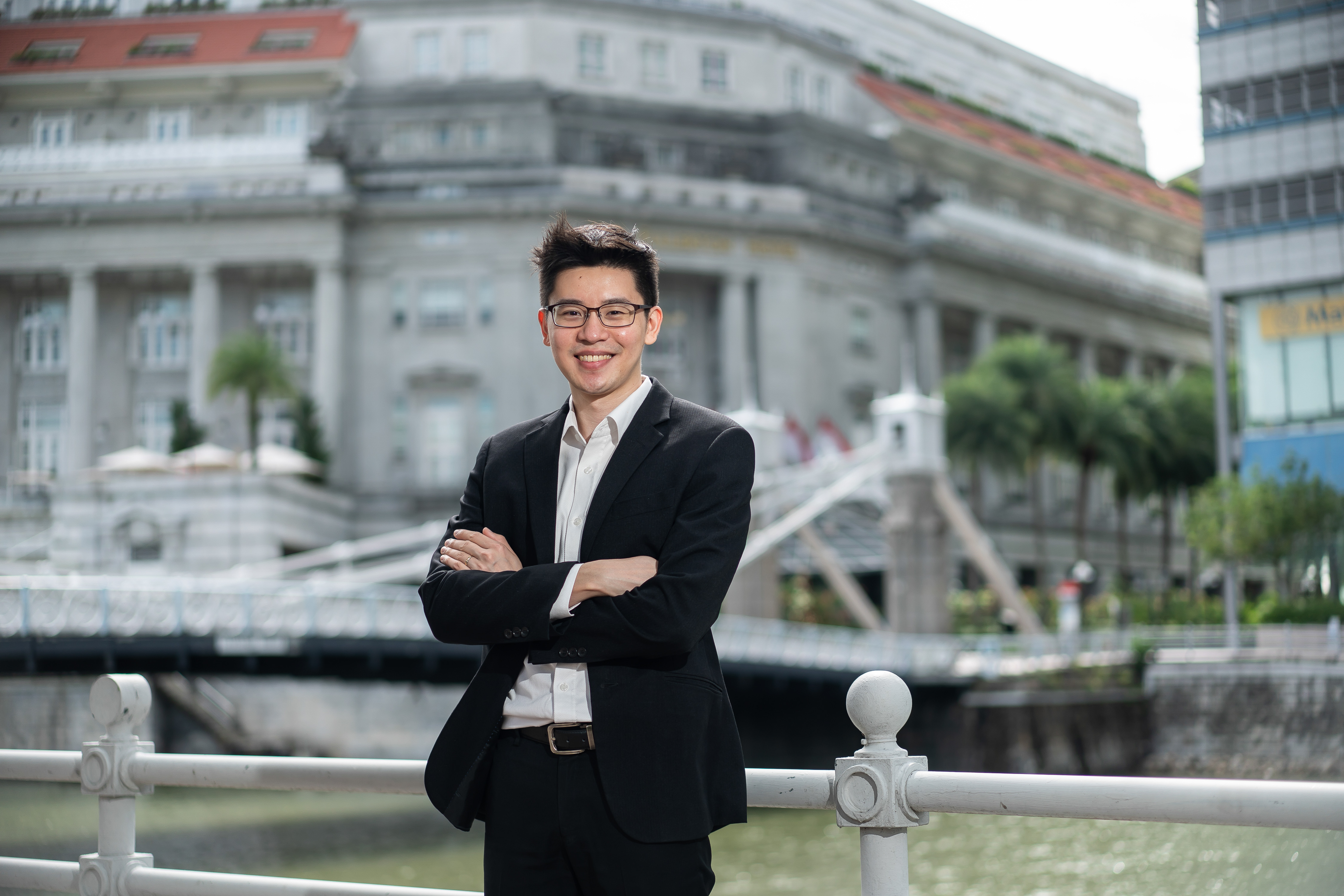 Nicholas Ng, Associate, Rajah & Tann Singapore LLP
Nicholas Ng, Associate, Rajah & Tann Singapore LLP
Insight MinLaw: Why did you enrol in the programme?
Nicholas: Having gone on immersion trips to China in my secondary school days and taking a couple of China-related law modules in university, I have always been interested in using Chinese in my legal career. When the programme came along, I saw it as the perfect platform for me to brush up on my legal Chinese and basic knowledge of Chinese law and culture, so as to pursue the above interest.
Insight MinLaw: Did the programme meet your objectives and what are your takeaways?
Nicholas: Having used English predominantly in my first few years of practice, I appreciated the opportunity to re-visit the Chinese language and, helpfully, in the legal context. Given that Singapore’s domestic legal market is relatively small, I learnt that it is important for Singapore to look beyond its shores and tap on opportunities presented by larger markets such as China.
Insight MinLaw: How has the programme helped you in your work?
Nicholas: The programme increased my confidence in using Chinese in a professional setting. Initially, it was tedious for me to suddenly go back to reading, writing and speaking Chinese in an educational setting as it had been some years since I left school. However, the Business and Legal Chinese module of the programme offered strong foundational training and I found myself reading and understanding course materials more easily as the programme went along.
The case studies discussed during the programme also helped me better appreciate issues and features unique to Chinese law. With the knowledge acquired from the programme, I managed to embark on a new role dealing with Chinese investment disputes.
Insight MinLaw: Tell us one interesting thing you learnt at the programme that you never knew.
Nicholas: One of the speakers at the programme advised that in order to succeed in serving the Chinese market, being bilingual alone is not enough as there are many Chinese lawyers who are effectively bilingual. As lawyers from Singapore, our value-add comes in not only being effectively bilingual, but also in having a good understanding of how Chinese law (with its civil law tradition) interacts with the common law tradition adopted by several other jurisdictions. This left a strong impression on how we as Singapore lawyers should position ourselves when dealing with the Chinese market.

The second run of the China Ready Programme will commence in January 2022. Find out more and sign up here!
Last updated on 30 November 2021
Other stories you may like:
Global Experts Connect at Singapore Convention Week
The Future is LegalTech

